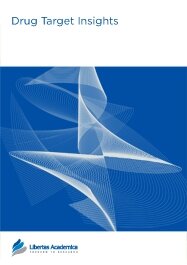

Publication Date: 19 Oct 2006
Journal: Drug Target Insights

Alzheimer’s disease (AD) is a neurodegenerative disease, characterized in the brain by amyloid plaque deposits and neurofibrillary tangles. It is the most common form of dementia among older people. There is at present no cure for AD, and current treatments consist mainly in drug therapy. Potential therapies for AD involve gene and cellular therapy. The recent confirmation that neurogenesis occurs in the adult brain and neural stem cells (NSCs) reside in the adult central nervous system (CNS) provide new opportunities for cellular therapy in the CNS, particularly for AD, and to better understand brain physiopathology. Hence, researchers have aimed at characterizing neurogenesis in patients with AD. Studies show that neurogenesis is increased in these patients, and in animal models of AD. The effect of drugs used to treat AD on neurogenesis is currently being investigated, to identify whether neurogenesis contributes to their therapeutic activities.
PDF (162.98 KB PDF FORMAT)
RIS citation (ENDNOTE, REFERENCE MANAGER, PROCITE, REFWORKS)
BibTex citation (BIBDESK, LATEX)
XML
PMC HTML
Publishing in Air, Soil and Water and Water Research was the best experience I have had so far in an academic context. The review process was fair, quick and efficient. I congratulate the team at Libertas Academica for a very well managed journal.Magnus Karlsson (IVL Swedish Environmental Research Institute, Stockholm, Sweden) What Your Colleagues Say
Copyright © 2012 Libertas Academica Ltd (except open access articles and accompanying metadata and supplementary files.)
FacebookGoogle+Twitter
PinterestTumblrYouTube